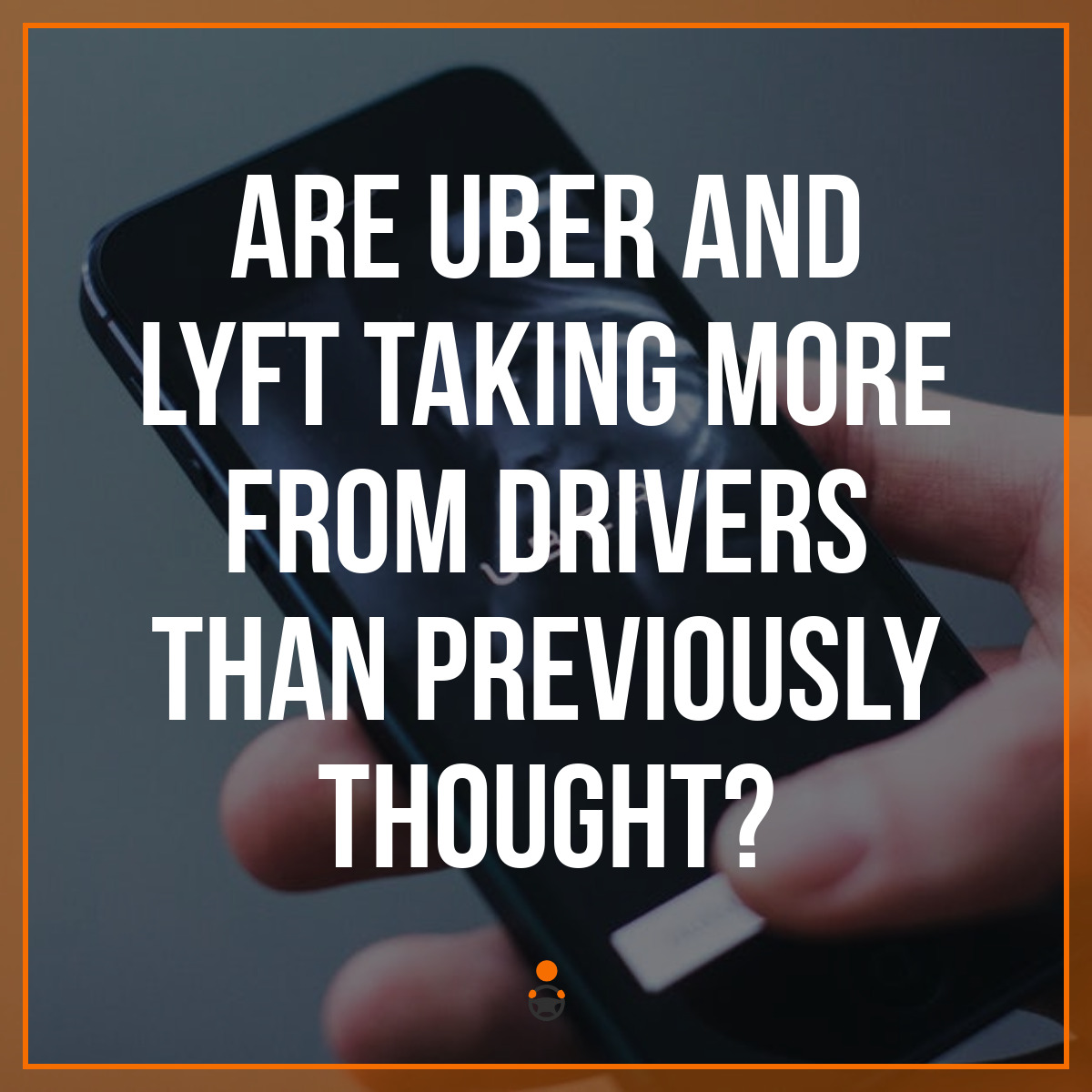In this week’s roundup, senior RSG contributor John Ince highlights the intriguing expose by Jalopnik on Uber and Lyft’s take rates. We’ve known about upfront pricing from Uber for a while now, but Jalopnik gathered information from over 14,000 drivers to put together an exhaustive perspective on Uber, Lyft, and just how much they take from drivers. All that and more below.

Uber And Lyft Take A Lot More From Drivers Than They Say [Jalopnik]
Sum and Substance: In July, an Uber driver we’ll call Dave—his name has been changed here to protect his identity—picked up a fare in a trendy neighborhood of a major U.S. metropolitan area. It was rush hour and surge pricing was in effect due to increased demand, meaning that Dave would be paid almost twice the regular fare.
Even though the trip was only five miles, it lasted for more than half an hour because his passengers scheduled a stop at Taco Bell for dinner. Dave knew sitting at the restaurant waiting for his fares to get a Doritos Cheesy Gordita Crunch or whatever would cost him money; he was earning only 21 cents a minute when the meter was running, compared to 60 cents per mile. With surge pricing in effect, it would be far more lucrative to keep moving and picking up new fares than sitting in a parking lot.
But Dave, who was granted anonymity out of fear of being deactivated by the ride-hail giant for speaking to the press, had no real choice but to wait. The passenger had requested the stop through the app, so refusing to make it would have been contentious both with the customer and with Uber. The exact number varies by city, but drivers must maintain a high rating in order to work on their platform. And there’s widespread belief among drivers that the Uber algorithm punishes drivers for cancelling trips.
Ultimately, the rider paid $65 for the half-hour trip, according to a receipt viewed by Jalopnik. But Dave made only $15 (the fares have been rounded to anonymize the transaction).
Uber kept the rest, meaning the multibillion-dollar corporation kept more than 75 percent of the fare, more than triple the average so-called “take-rate” it claims in financial reports with the Securities and Exchange Commission.
Had he known in advance how much he would have been paid for the ride relative to what the rider paid, Dave said he never would have accepted the fare.
“This is robbery,” Dave told Jalopnik over email. “This business is out of control.”
My Take: Kudos to Jalopnik for this expose. The word “exploitation” seems to be used more and more in reference to the TNCs, and with good reason.
Note the reaction of Uber and Lyft when confronted with a barrage of incriminating information – they resort to their tried and true technique of plausible deniability, yet when asked to share information to back up their denials, they balk. That’s the ultimate source of the inequity here. The TNCs have the information – so they feel they can do what they want.
AB5 Moves One Step Closer to Becoming a Law [LA Times]
Sum and Substance: Assembly Bill 5, which writes into law a strict test before companies can classify workers as contractors, cleared a key fiscal committee Friday in the state Senate. It is expected to pass both houses of the Legislature before lawmakers adjourn Sept. 13. If that happens, Gov. Gavin Newsom is expected to sign the bill. “The governor is supportive of addressing the misclassification of workers, which for decades has been a driver of income inequality,” a Newsom spokesman said
My Take: This was the late breaking news on Friday and things have gotten so bad, that Uber and Lyft have even offered to pay drivers a $21 per hour minimum wage, BUT there’s a catch. It looks like this bill is headed towards a vote on the senate floor but I wouldn’t be surprised if opponents pull out all the stops to try and stop it.
Uber Tries to Lure Old Drivers, Lyft Requires Newer Vehicles in Florida and Unveils New Pay Structure: Drivers React [LinkedIn]
Sum and Substance: Recently, Lyft changed its driver vehicle requirements in the state of Florida. Now, all new drivers must have a vehicle 2017 or newer – a radical departure from the typical 10-year-old vehicles that Lyft typically allows. According to Lyft, this is temporary, but it is an interesting development to pay attention to since it effectively puts a cap on the number of drivers – the same thing they’re fighting in NYC. If this ends up being financially beneficial for Lyft (and drivers), we could see these ‘temporary’ adjustments show up in more cities.
My Take: A little cross promotion here. RSG’s new LinkedIn twice-monthly Rideshare Drivers React digest is live now, and it’s one more good place to bookmark to get the latest on what’s happening in this industry.
Anthony Levandowski, former Google engineer at center of Waymo-Uber case, charged with stealing trade secrets [Techcrunch]
Sum and Substance: Anthony Levandowski, the former Google engineer and serial entrepreneur who was at the center of a trade secrets lawsuit between Uber and Waymo, has been indicted by a federal grand jury on theft of trade secrets.
The indictment, which is posted below, charges Levandowski with 33 counts of theft and attempted theft of trade secrets while working at Google, where he was an engineer and one of the founding members of the group that worked on Google’s self-driving car project. He is scheduled to be arraigned on the charges at 1:30 p.m. Tuesday before U.S. Magistrate Judge Nathanael M. Cousins.
If convicted, Levandowski faces a maximum sentence of 10 years and a fine of $250,000, plus restitution, for each violation, according to the U.S. Attorney’s office.
My Take: We all knew this was coming. The civil trial ended with a settlement, but this trial carries potential jail time for Levandowski. I’m not qualified to make a prediction based on the facts, but from my seat up here in the bleachers, sure looks to me like Levandowski has something to be really worried about. Despite his lawyer’s denials, public prosecutors don’t like to waste taxpayers money unless they’ve got a pretty strong case.
Readers, what do you think of this week’s roundup?
-John @ RSG




